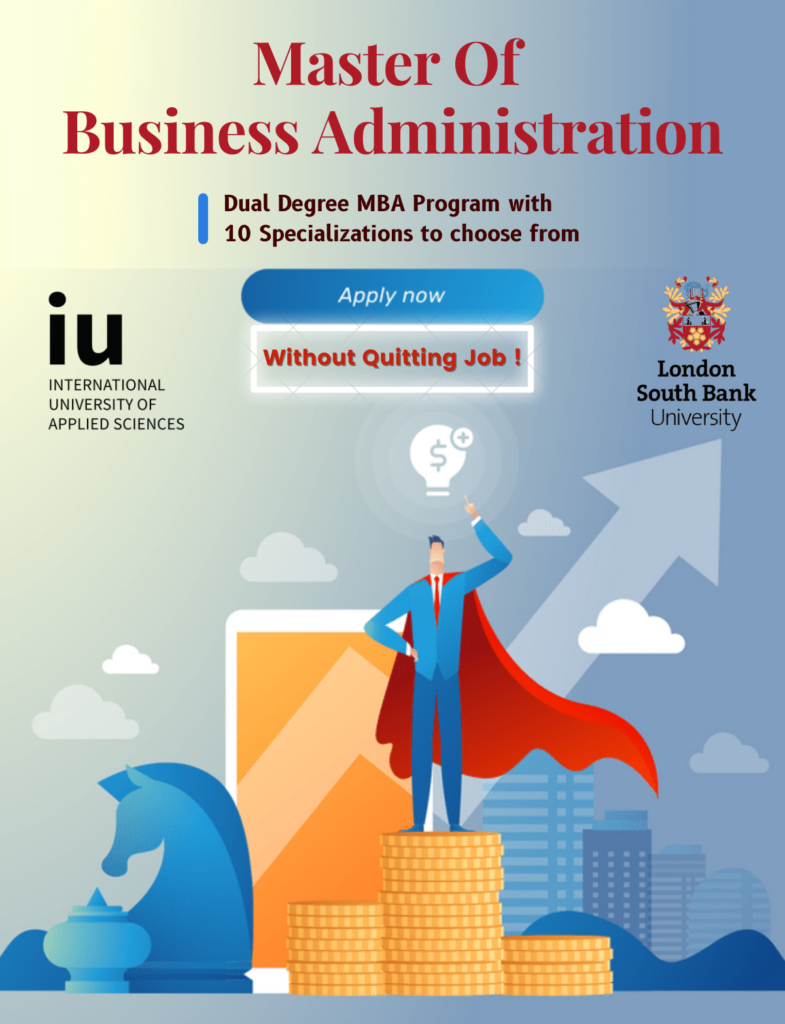It often happens in life that we tend to opt for a career that ends up not being as lucrative or interesting as it initially seemed. You may feel resigned to go ahead with that career anyway, but there is a way out of the helplessness.
You can do an MBA. The interesting bit is that not only will it be a way out of an unstimulating career but also an excellent opportunity to step-up your current professional potential.
The eligibility criteria are that a student must have completed their graduation of three-year duration, at least, in any discipline with an aggregate percentage of 50%. Some colleges also allow students in their final year of graduation to apply provided that they furnish a certificate from the head of their college.
Entrance Exams
Many colleges conduct entrance exams for this two-year study programme. The prominent ones are CAT, XAT, SNAP, TISS-NET, GMAT, MAT, NMAT, IIFT, MICAT. Different colleges release the application forms on their website around July. Be sure to check the websites to keep yourself updated.
Required Skill Set
• Confidence
• Time Management
• Critical Thinking
• Innovative thinking
• Communication skills
• Ability to work in teams
Course Curriculum
MBA 1st Semester Subjects
Corporate Social Responsibility
Microeconomics
Principles of Marketing Management
Principles of Accounting
Tools and Framework of Decision Making
Quantitative Methods and Statistics
Business Communication and Soft Skills
Organizational Behaviour 1
MBA 2nd Semester Subjects
Macroeconomics
Business Law
Operations Management
Optimization and Project Research
Corporate Finance
Project Management
Marketing Management
Organizational Behaviour 2
MBA 3rd Semester Subjects
The syllabus for the 3rd Semester depends on the specialisation you choose.
MBA 4th Semester Subjects
Internship Projects
Top Recruiters
Global companies:
- Microsoft
- Apple
- Amazon
- Morgan Stanley
- Boston Consulting Group
- P&G
Indian companies:
- Reliance Industries Limited
- Tata Consultancy Services
- Wipro
- Infosys
- Cognizant
Salary
Depending upon your area of specialization, following is the breakup of the starting salary offered:
- Finance – ₹4LPA to ₹9LPA
- Business Analytics – ₹5LPA to ₹6LPA
- Sales and Marketing – ₹6LPA to ₹8LPA
- Human Resources – ₹2LPA to ₹5LPA
- Operation Management – ₹6LPA to ₹12LPA
- International Business – ₹3LPA to ₹12LPA
- Management Consulting – ₹3LPA to ₹13LPA
Global MBA Salaries
- Germany– $77,200 to $94,100
- Singapore– $82,700 to $105,300
- Italy– $84,400 to $111,800
- United Kingdom– $92,400 to $122,900
- Australia– $98,400 to $116,200
- France– $98,500 to $116,200
- Canada– $99,800 to $111,100
- Switzerland– $102,100 to $120,900
- Japan– $80,000 to $106,600
- United States– $102,100 to $120,900
Pros and Cons
Pros
1. Worldwide recognition of the degree
An extremely beneficial aspect of pursuing an MBA is that the degree is recognised worldwide. So you may have studied in India, but you could get a job in USA or UK.
2. Enhanced Communication Skills
Apart from teaching you the theoretical facets of business, an MBA will also teach you the practical facets in terms of building your personality and communication skills.
3. Boost to Salary Potential
MBA graduates are one of the highest-paid professionals in the job market. So, say goodbye to financial troubles after getting a job.
4. Many Specialisations to Choose From
If you are not sure about choosing a specialisation in MBA, do not worry. You’d be given an entire year of exploration during your two-year programme to choose amongst HR, Consulting, Marketing, Finance, etc.
5. Graduates from any stream can pursue this
Another advantage is that no matter what subjects you studied in your college, you are eligible for an MBA. Did Engineering? You’re eligible. Pursued Medicine? You’re eligible. Have a B.Sc. degree? Yet again, you’re eligible.
Cons
1. MBA admissions depend on a lot of factors
There are more than 3,000 MBA colleges in India, though for you to have a sure-shot chance at getting a good job, you need to complete your MBA from a top-notch college. However, admissions in top colleges are dependent on multiple factors which may not be under your control when you apply such as your academic records, or your extracurriculars. As such, it is advisable to keep a plan-B handy.
2. Cost of Study
Most MBA colleges have a high fee that cannot be afforded by an average person. Applicants often apply for loans to pay their fees. Do keep this in mind since the expenses can range in lakhs.
3. Hectic schedule
Do not expect MBA colleges to have the same lax schedules as you had in college. Students here are expected to work under pressure with short deadlines. In fact, students often have to sacrifice their sleep and food too.
Frequently Asked Questions (FAQs)
1. What is the duration of an MBA?
The duration of an MBA is 2 years during which in the first year you’ll study all the subjects, while in the second you’ll get to choose a specialisation.
2. What entrance exams can I give to get into an MBA college?
The most notable ones are CAT, GMAT, MAT, SNAP, XAT, TISS-NET, NMAT.
3. Are there any affordable MBA colleges in India?
Yes. The fees of FMS-Delhi and IMS-BHU is quite low. The fee for an entire MBA is ₹1,92,000 and ₹98,000 respectively.
4. Can I join an MBA if I don’t have work experience?
Yes, you can. Although some colleges do give extra points to candidates with work experience, it is not a prerequisite for applying for an MBA.
5. Should I join coaching for MBA preparation?
Even though it is totally possible to crack MBA entrances without any coaching, it is advisable to go for it nevertheless. This is becoming joining coaching will help you get motivated and keep your competitive spirits high. Additionally, regular tests will help you analyse the weak points that you need to work on.
6. Is MBA a career for extroverts?
That is a widespread misunderstanding that MBA is for extroverts. There is no truth to it. You will have to network with a lot of people during an MBA but remember introversion and social anxiety are two different things. Unless you fall in the latter category, you’ll be fine.
7. Can I get into good MBA colleges if my academic record is not very good?
Yes. When selecting a candidate for admission, colleges not just look at your academic record, but also your extracurricular activities, work experience, and personality. So you can start working on the latter three.
8. When should I start preparing for MBA entrances if I am a first-year student of engineering?
Ideally, you should start your preparation during the last year of your graduation. That will give you ample time to prepare and ace your exams.
Interested to know more details about MBA from top international university, Click here














